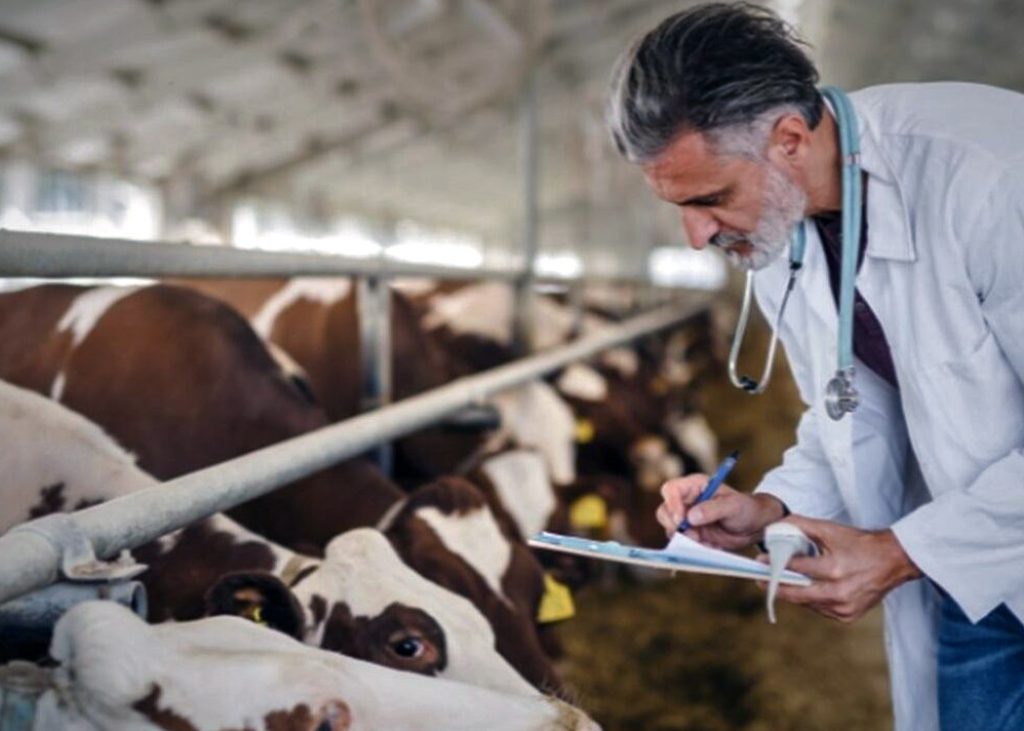
By M Irfan Ali
Pakistan’s livestock sector is witnessing a significant transformation in disease management and healthcare, promising to boost productivity, animal welfare, and rural livelihoods.
Livestock diseases have always threatened Pakistan’s farmers, impacting animal health and agricultural output. However, recent strides in disease surveillance and control are reshaping the landscape.
The government, in collaboration with international organizations and local experts, has introduced comprehensive disease monitoring programs, featuring centralized disease control centers and the adoption of modern diagnostic technologies.
Advanced early detection systems, using data analytics and artificial intelligence, now identify outbreaks before they spread, facilitating timely interventions.
Vaccination remains a cornerstone of livestock healthcare, and Pakistan is making notable progress in this area. The government has broadened its vaccination programs to include a wider range of diseases such as foot-and-mouth disease (FMD), avian influenza, and brucellosis. These programs, supported by both public and private sectors, ensure that vaccines reach farmers in even the most remote regions.
A particularly innovative development is the deployment of mobile vaccination units that travel to rural areas, offering vaccinations and health check-ups where access was previously limited. This approach not only enhances disease prevention but also fosters trust between farmers and healthcare providers.
Upgrading the quality of veterinary services is another key focus. Efforts are underway to improve veterinary infrastructure and enhance the skills of veterinary professionals. New clinics and mobile units equipped with advanced technology are being established, staffed by well-trained professionals.
Moreover, ongoing training programs for veterinarians and para-veterinarians are enhancing their ability to diagnose and treat a variety of conditions. Workshops, seminars, and hands-on sessions are equipping these professionals with the latest knowledge and techniques in animal healthcare.
Educating farmers about livestock health and disease management is crucial for improving outcomes. Recent initiatives provide farmers with the knowledge and resources needed to effectively manage their herds.
Training programs, workshops, and informational campaigns are being conducted to promote best practices in animal husbandry, disease prevention, and emergency response.
Support networks are also being developed to offer farmers expert advice and assistance, providing technical support and financial aid for purchasing necessary supplies and treatments.
The role of public-private partnerships (PPPs) in transforming livestock healthcare is significant. Collaborations between government agencies, non-governmental organizations (NGOs), and private companies are driving innovation and resource mobilization. These partnerships facilitate the development and distribution of new vaccines, treatments, and diagnostic tools.
Innovation is central to these efforts. For example, telemedicine services are being introduced, allowing farmers to consult with veterinarians remotely. This is particularly beneficial for those in isolated regions, providing expert advice without the need for long-distance travel.
The improvements in livestock healthcare are having a profound impact on the livelihoods of Pakistan’s farmers. Healthier animals lead to increased productivity, higher income, and greater food security. As livestock diseases become more manageable, farmers are experiencing reduced losses and enhanced economic stability.
Moreover, these advancements are contributing to the overall economic growth of rural areas. Healthier livestock and more efficient farming practices are helping communities thrive, supporting broader economic development across the country.






